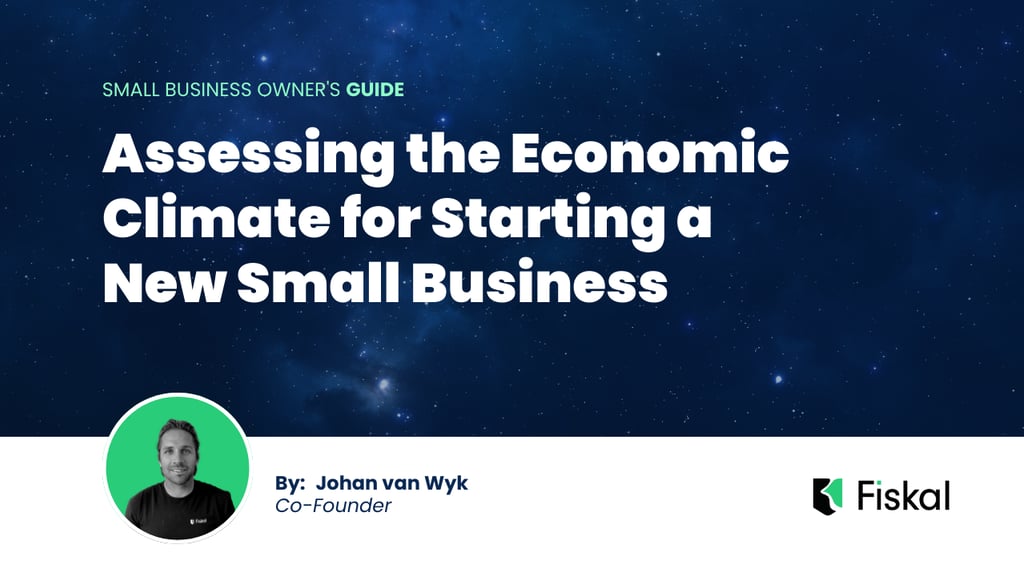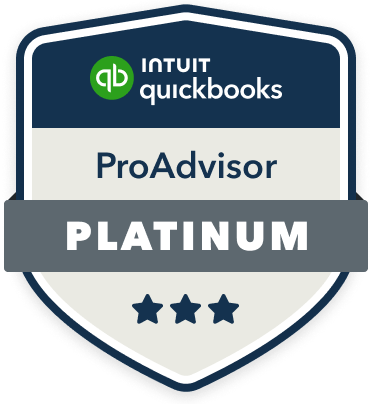The Perfect Storm: Assessing the Economic Climate for Starting a New Small Business
Starting a new small business can be an exciting venture, brimming with hopes and dreams. However, before diving headfirst into entrepreneurship, it is crucial to assess the economic climate and evaluate the challenges that lie ahead. In the ever-changing landscape of the business world, understanding the factors that contribute to the perfect storm for a new small business is paramount. This article delves into the economic climate for starting a new small business, examining the key indicators and trends that can make or break a venture. From analyzing market conditions and consumer behavior to exploring government regulations and industry competition, we leave no stone unturned. By gaining insight into the economic environment, entrepreneurs can make informed decisions and devise strategies that increase the chances of success. In assessing the economic climate for starting a new small business, we aim to provide valuable insights and guidance to aspiring entrepreneurs. Whether you're considering a traditional brick-and-mortar store or an online venture, this article will equip you with the knowledge needed to weather the storms and navigate towards business success.
SYSTEMS AND SOFTWARE


Factors to consider before starting a new small business
Before diving headfirst into the world of entrepreneurship, it is essential to carefully consider the various factors that can impact the success of a new small business. One of the most critical elements to address is the economic climate and its potential influence on your venture.
Understanding the current state of the economy, including market trends, consumer behavior and industry dynamics, can provide invaluable insights that will shape your business strategy. Analyzing the competitive landscape and identifying potential threats and opportunities can also help you make informed decisions and develop a strong competitive advantage.
Additionally, assessing your access to capital and exploring various funding options can play a crucial role in determining the viability of your business idea. Navigating the complex web of government policies and regulations that affect small businesses is another crucial factor to consider, as compliance can significantly impact your operations and profitability.
Understanding market trends and demand
Staying abreast of market trends and understanding consumer demand is a fundamental aspect of starting a successful small business. By closely monitoring the pulse of your industry, you can identify emerging opportunities and potential pain points that your business can address.
Analyzing market data and consumer behavior can provide valuable insights into the current and future needs of your target audience. This information can inform your product or service development, pricing strategies and marketing efforts, ultimately increasing your chances of resonating with your customers.
Furthermore, understanding the broader economic trends and their impact on your industry can help you anticipate and adapt to changes in the market. This knowledge can enable you to make strategic decisions that position your business for long-term growth and sustainability, even in the face of economic uncertainty.
Assessing the competitive landscape
Evaluating the competitive landscape is a crucial step in determining the viability of your small business venture. By understanding the strengths and weaknesses of your competitors, you can identify the unique value proposition that will set your business apart and attract customers.
Conducting a thorough analysis of your competitors' products, services, pricing, and marketing strategies can provide valuable insights into the industry dynamics. This information can help you develop a differentiated offering that caters to the unmet needs of your target market, enabling you to carve out a sustainable competitive advantage.
Moreover, understanding the barriers to entry in your industry can help you anticipate and mitigate potential challenges. This knowledge can inform your business planning and resource allocation, ensuring that you have the necessary capabilities and resources to thrive in a competitive environment.
Economic indicators and their impact on small businesses
The broader economic climate can have a significant impact on the success of a small business. Closely monitoring key economic indicators, such as GDP growth, unemployment rates, consumer confidence and inflation, can provide valuable insights into the overall health of the economy and its potential implications for your business.
During periods of economic growth and stability, consumer spending and business investment tend to increase, creating favorable conditions for small businesses to thrive. Conversely, economic downturns or recessions can lead to decreased consumer demand, tighter credit markets and increased competition, posing significant challenges for small business owners.
Understanding how these economic indicators interact and influence your industry can help you anticipate and respond to changes in the market. By developing contingency plans and adapting your strategies accordingly, you can increase the resilience of your small business and navigate through economic uncertainties more effectively.
Access to capital and funding options
Securing adequate funding is a critical aspect of starting and sustaining a small business. Access to capital can determine the scale and pace of your growth, as well as your ability to withstand economic fluctuations.
Exploring various funding options, such as traditional bank loans, Small Business Administration (SBA) loans, venture capital, angel investors or crowdfunding platforms, can provide the necessary resources to launch and expand your business. Each option comes with its own set of requirements, terms, and considerations, so it is essential to carefully evaluate the pros and cons to find the most suitable financing solution.
Additionally, understanding the impact of economic conditions on the availability and cost of capital can inform your funding strategy. During periods of economic uncertainty, lenders and investors may become more risk-averse, making it more challenging to secure financing. Proactively exploring alternative funding sources and developing relationships with financial institutions can help you navigate these challenges and ensure the financial stability of your small business.
Government policies and regulations affecting small businesses
The regulatory environment in which a small business operates can have a significant impact on its success and profitability. Understanding the various government policies, laws, and regulations that apply to your industry is crucial for ensuring compliance and avoiding potential legal and financial pitfalls.
From tax policies and labor laws to industry-specific regulations and licensing requirements, the government's role in shaping the business landscape cannot be overlooked. Staying informed about changes in the regulatory environment and adapting your business practices accordingly can help you maintain a competitive edge and avoid costly penalties or disruptions.
Additionally, monitoring government initiatives and programs designed to support small businesses, such as tax incentives, grant programs or regulatory relief, can provide valuable resources and opportunities to enhance your business's viability. Leveraging these government-backed initiatives can help offset the challenges posed by the economic climate and enable your small business to thrive.
Economic support programs for small businesses
In times of economic uncertainty, governments and various organizations often implement support programs and initiatives to aid small businesses in navigating the challenges. Understanding the availability and eligibility criteria for these programs can be a crucial factor in the success of your small business venture.
These support programs can take various forms, such as financial assistance, tax credits, loan guarantees or targeted training and advisory services. By accessing these resources, small business owners can obtain the necessary funding, expertise and guidance to overcome economic obstacles and strengthen the resilience of their enterprises.
Staying informed about the latest developments in small business support programs, both at the federal and local levels, can help you identify and leverage the opportunities that align with your business needs. Proactively exploring and leveraging these support mechanisms can provide a crucial lifeline during periods of economic turbulence, enhancing your chances of weathering the storm and emerging stronger.
Forecasting and planning for economic uncertainties
In the dynamic and ever-changing business landscape, the ability to anticipate and adapt to economic uncertainties can be the difference between success and failure for a small business. Developing robust forecasting and contingency planning strategies is essential to navigating the potential storms that may lie ahead.
By closely monitoring economic indicators, industry trends, and market fluctuations, small business owners can gain a better understanding of the potential risks and opportunities that may arise. This knowledge can inform the development of scenario-based planning, where you can explore various economic scenarios and devise corresponding strategies to mitigate the impact on your business.
Additionally, building financial resilience through sound budgeting, cash flow management, and diversification of revenue streams can help your small business weather economic storms more effectively. Regularly reviewing and updating your business plans, adapting your operations and maintaining a flexible mindset can enable you to pivot and seize opportunities as the economic landscape evolves.
Conclusion: Evaluating the viability of starting a new small business in the current economic climate
Starting a new small business is a bold and exciting endeavor, but it also requires a deep understanding of the economic climate and its potential impact on your venture. By carefully considering the factors outlined in this article, aspiring entrepreneurs can make informed decisions and increase their chances of success in the current economic landscape.
From analyzing market trends and competitive dynamics to navigating government policies and accessing capital, each element plays a crucial role in determining the viability of your small business idea. By proactively addressing these considerations and developing strategies to adapt to economic uncertainties, you can position your new small business for long-term growth and sustainability.
Embarking on the entrepreneurial journey is both exhilarating and challenging, but with the right preparation and a keen understanding of the economic environment, you can weather the perfect storm and establish a thriving small business that contributes to the economic fabric of your community. The path may not be easy, but with the right mindset, resources and resilience, your small business can emerge as a shining beacon of success in the ever-evolving business landscape.












